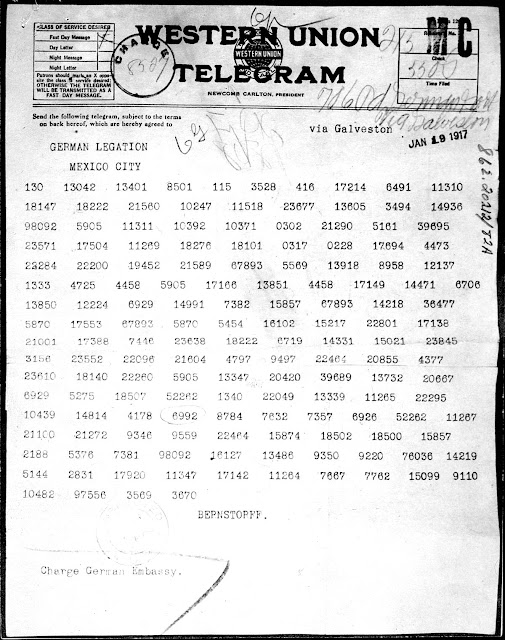

Only once he was convinced that he had found a way to protect his precious secret did he give the telegram to Balfour. Once the Germans learned that their codes and ciphers were no longer secure, they would stop using them and a veritable gold mine of information would stop flowing into Hall’s office. Although Admiral Sir William Hall knew exactly how important the telegram was, he had to find a way to show it to the Americans without revealing that his office had broken the German codes.

The Royal Navy admiral whose office, codenamed Room 40, had intercepted and decoded the telegram had also been wracked with doubt about what to do.
Zimmerman telegram full#
īalfour, knowing full well that the telegram might lead the Americans to enter the war on Britain and France’s side, had nevertheless hesitated to show it to Page. Far from being a man the Americans could see as a partner for peace, he was instead the author of the most notorious message Page had ever seen. The telegram Page stared at in numb disbelief proved beyond the shadow of a doubt that Zimmermann had been lying all along. He had thus far said all the right things and shown a receptiveness to Wilson’s cherished efforts to end the war through peace negotiations. Zimmermann was a member of the middle class, not the aristocracy that President Wilson’s administration so deeply mistrusted. The fact that the telegram before him bore Arthur Zimmermann’s name made its contents that much harder for Walter Hines Page to believe. Page was the American ambassador to Great Britain and on a cold London morning in late February 1917 the British foreign minister Arthur Balfour stood before him with what Page called a “bombshell.” Page had had high hopes for Zimmermann, recently named the new German foreign minister.


 0 kommentar(er)
0 kommentar(er)
